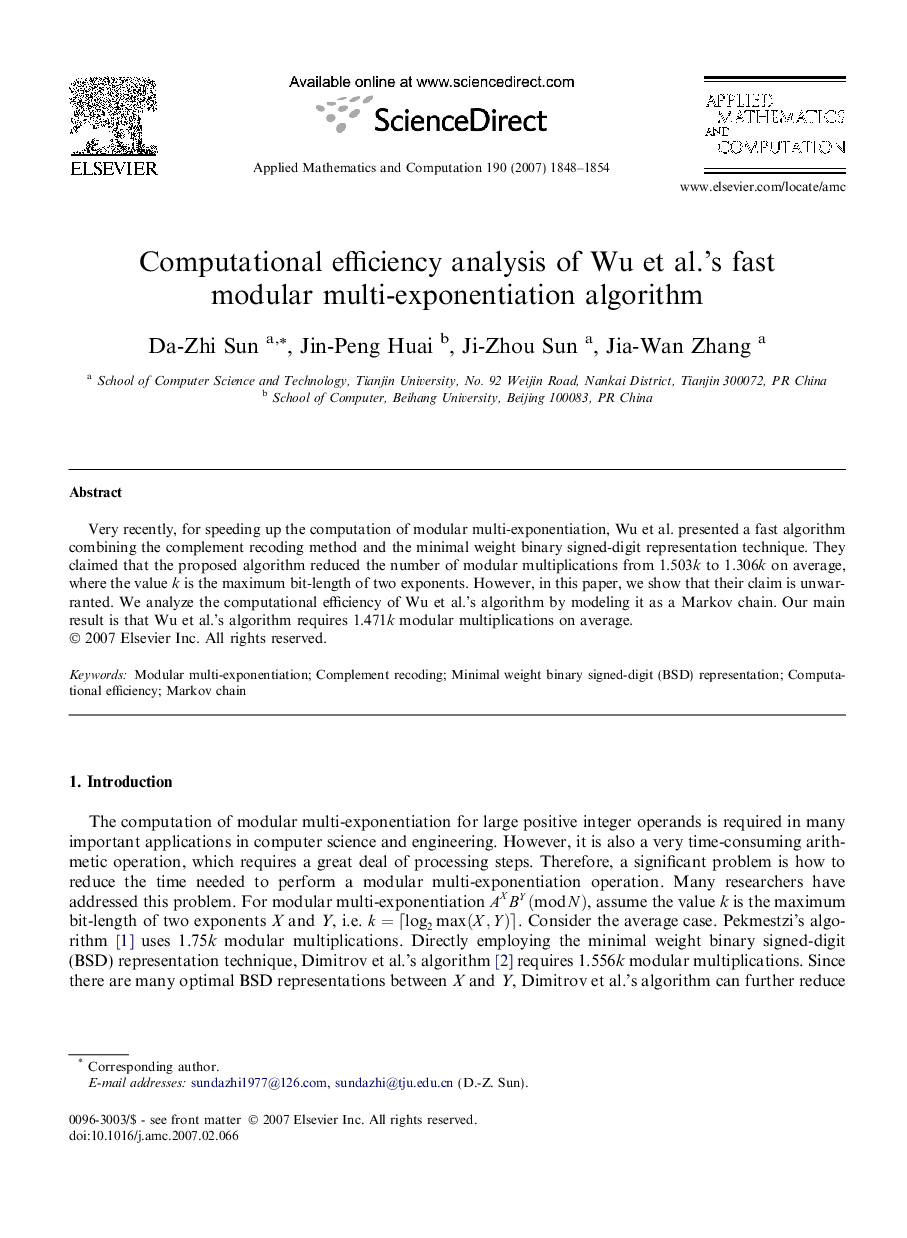| Article ID | Journal | Published Year | Pages | File Type |
|---|---|---|---|---|
| 4635038 | Applied Mathematics and Computation | 2007 | 7 Pages |
Abstract
Very recently, for speeding up the computation of modular multi-exponentiation, Wu et al. presented a fast algorithm combining the complement recoding method and the minimal weight binary signed-digit representation technique. They claimed that the proposed algorithm reduced the number of modular multiplications from 1.503k to 1.306k on average, where the value k is the maximum bit-length of two exponents. However, in this paper, we show that their claim is unwarranted. We analyze the computational efficiency of Wu et al.’s algorithm by modeling it as a Markov chain. Our main result is that Wu et al.’s algorithm requires 1.471k modular multiplications on average.
Keywords
Related Topics
Physical Sciences and Engineering
Mathematics
Applied Mathematics
Authors
Da-Zhi Sun, Jin-Peng Huai, Ji-Zhou Sun, Jia-Wan Zhang,
